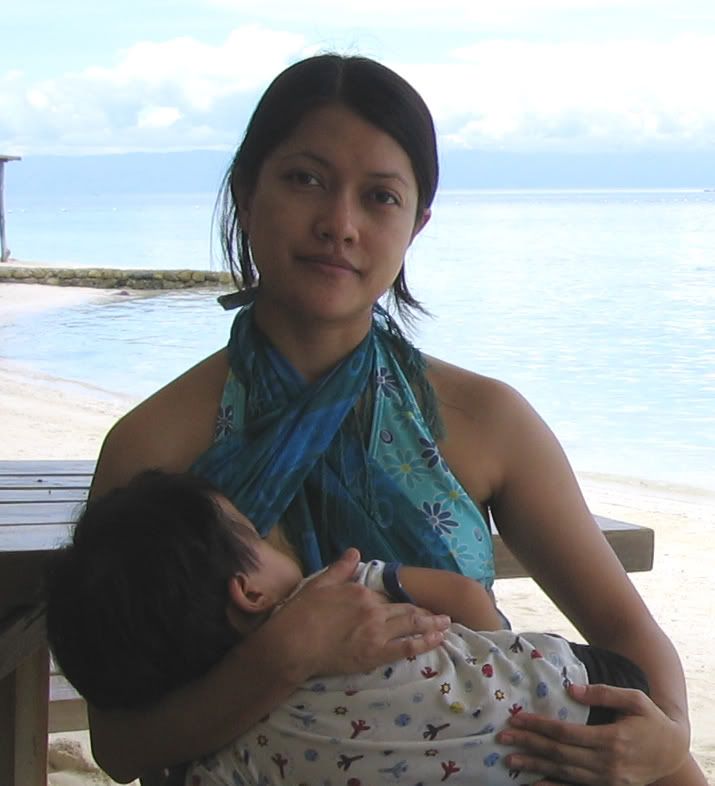 Is this baby getting harmed too?
Is this baby getting harmed too?Photo by Orin Optiglot
Walking along the aisles of my local pharmacy in Windsor, Ontario, a sign caught my eye. It said that all baby bottles containing bisphenol A (BPA) had been voluntarily removed from store shelves. I got so excited that I just had to drag my husband over to see the sign. I couldn't believe it: BPA containing baby bottles had been voluntarily removed from Canadian shelves when, in the Philippines, concerns over BPA have been ignored.
Breastfeeding advocates in the Philippines have been raising the alarm on BPA for the past few years, not months. And yet the Filipino public remains largely ignorant of BPA's dangers and retailers, no everybody else, just haven't shown any care at all.
BPA is a chemical found in hard plastic. It's not just in feeding bottles and sippy cups, but in many household items such as water bottles, CDs, DVDs and even dental sealants. According to an article in The Milwaukee Journal Sentinel, 93% of Americans tested had BPA in their urine.
Studies have linked BPA to breast cancer, testicular cancer, diabetes and hyperactivity in laboratory animals. However, the US Food and Drug Administration approved its use in manufacturing. Because of an investigation by Michigan congressmen, it was found that the FDA relied on only two studies to determine the safety of BPA -- both of which were funded by the Society of the Plastics Industry. One study had never been published; the other was criticized for being flawed.
Fortunately for residents of Canada, the Canadian government is poised to pronounce BPA as a toxic chemical and to ban it from the manufacture of baby feeding bottles and infant formula cans. In the meantime, the stores have begun removing the questionable products from their shelves.
However, even in Canada, the whole discussion about BPA has been disconnected from the issue of breastfeeding. BPA is not only a health problem or an environment problem. It demonstrates the increased risk of exposure to contaminants for babies who are formula-fed. Breastfed babies who receive expressed breastmilk in plastic feeding bottles are at an increased risk, too. The photo of Canadian Health Minister John Baird giving out BPA-free feeding bottles shows how the dangers of bottle-feeding seems to have been forgotten in this discourse.
Having never used feeding bottles for my third child, my husband and I breathed a sigh of relief. However, we do use sippy cups. Because I just recently bought them in Canada, I can be confident that the ones we're using don't have BPA. But now I'm starting to get suspicious of plastics in general, so I have ordered stainless steel water bottles for all my children, including the two who are already in school.
